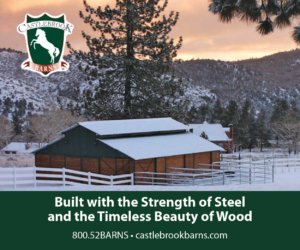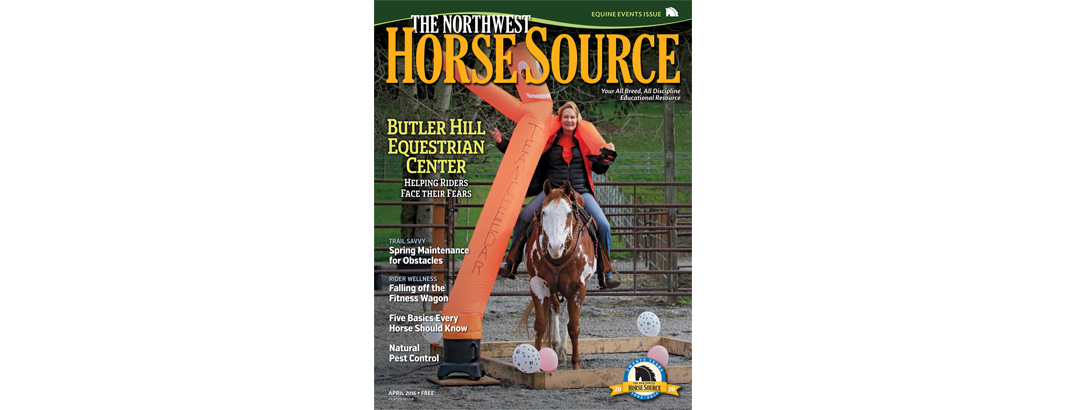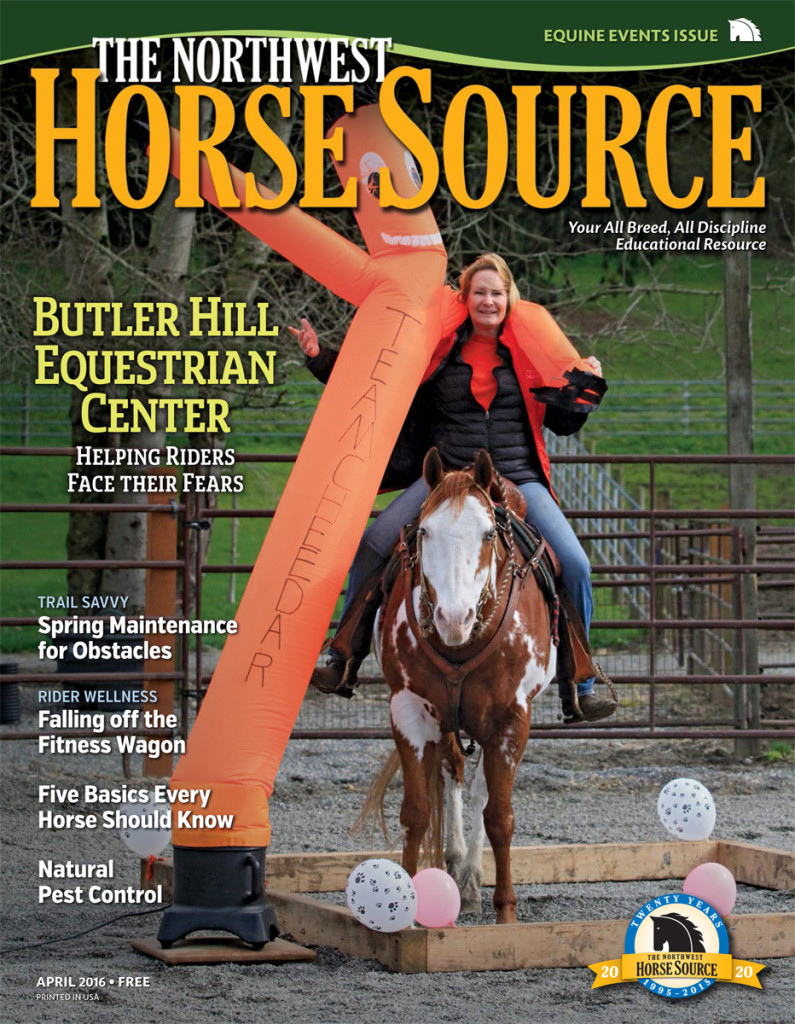Creating Fear-free Leaders that Walk through Fire
by Catherine Madera
Cindi Plendl, owner of Butler Hill Equestrian Center, isn’t impressed by current trends in horse training and handling. This includes DVD training series that cannot teach things like timing or feel and grandiose exhibitions by professionals eager to make a buck off of frustrated horse owners. Her method for developing safe horses and confident riders? Teach them how to walk through fire.

“Fear is your killer,” says Plendl, who trains both horses and clients at her facility in Burlington, WA in addition to hosting unique obstacle course and desensitizing clinics (that, yes, include fire). Her passion for solid horsemanship and identifying, and removing, fear as the primary obstacle to success has unusual roots.
After a lifetime quietly training problem and throw away horses in solitude, no one is more surprised than Plendl that she has found a niche teaching people. Though she has no formal education, Plendl’s primary horsemanship training began at 18 when she took a job with an 87-year-old retired stunt rider. Together they bought BLM mustangs and trained them to pack people on mountain trail rides in central WA. From her mentor she learned the importance of confidence, paired with humility. “You lose humble, you lose the horse,” remembers Plendl, an early lesson from a man who liked to put her on green horses while affirming, simply, that she wouldn’t get bucked off.
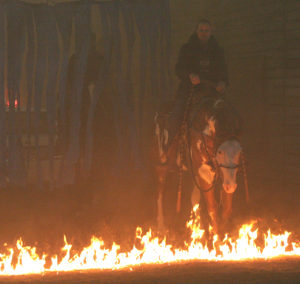
“I was never a great rider, I just had confidence,” says Plendl who went on to make a living training and selling horses until the recession. She has owned over 1,000 horses and has a special affinity for problem horses other people have given up on. Her methods are not complicated and do not require expensive tools and a long process.
“I go to battle for the lead position and then prove why I’m worth following. Horses are not made to be leaders; they become dangerous when they don’t trust the person to take care of them.”
Plendl’s current horse, Spud, was acquired as an angry and unbroke 10-year-old that had spent much of his life in a stall. After working him through various vices, the handsome paint is now confident and dependable.
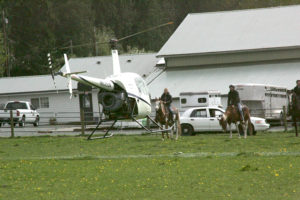
When describing how to work a horse through behavioral issues Plendl compares the process to an onion, with layers, and insists anyone can train their own horse if they lose fear-based responses. She has found that some popular training methods over desensitize the horse in the wrong places, leading the horse to shut down and the owners to lose hope in developing a willing, happy partnership.
“Never go farther than the horse’s confidence; don’t set them up to fail. Horses remember drama, so resist a focus on teaching the horse; instead be more aware of your own reactions.”
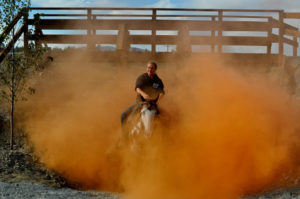
While Plendl describes herself as “old school” she has little tolerance for the use of ignorant force and says humans are the problem, not the horse. Currently Butler Hill Equestrian Center offers problem horse, de-spooking, intro to cattle and intro to obstacles and problem solving clinics, in addition to military drill practice for proper desensitization. The clinics feature unique and unusual obstacles and the opportunity to expose horses to group settings where riders can learn ways to confidently lead their horse through any situation. During the summer Plendl leads trail rides and hosts shows on her obstacle course. She also takes horses in training. Her goal for those that come for instruction is simple.
“I want people to succeed and get over their fear, to believe that they can do anything with a horse.”
Find out more about Butler Hill Equestrian Center at butlerhilleq.com or on Facebook.
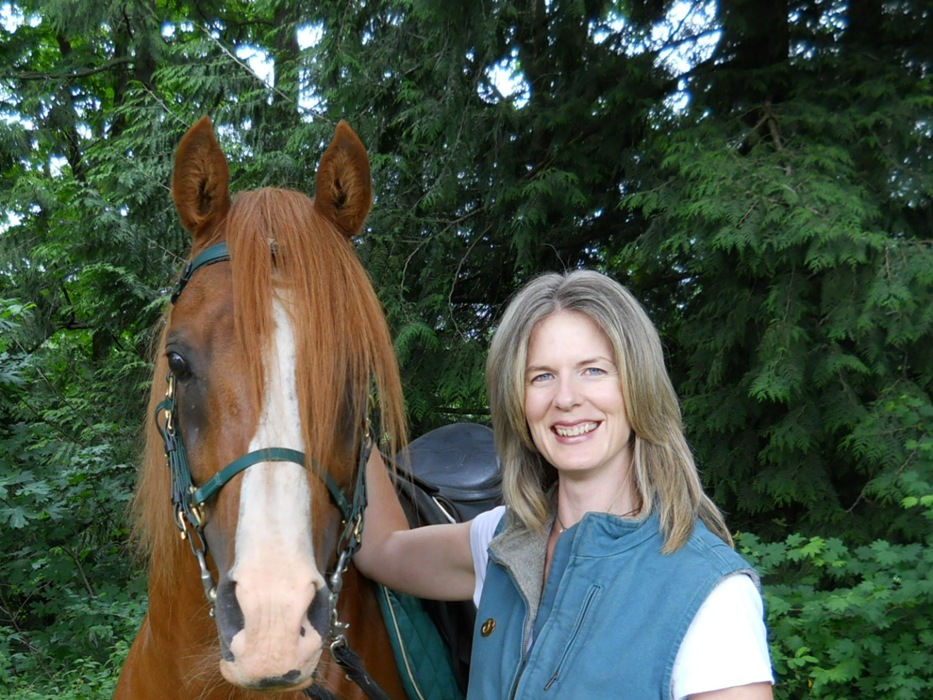
Catherine Madera served as editor of the Northwest Horse Source for five years. She has written for numerous regional and national publications and is a contributing writer for Guideposts Magazine and the author of four equine-related books. She has two grown children and lives with her husband and three horses in Northwest Washington.


